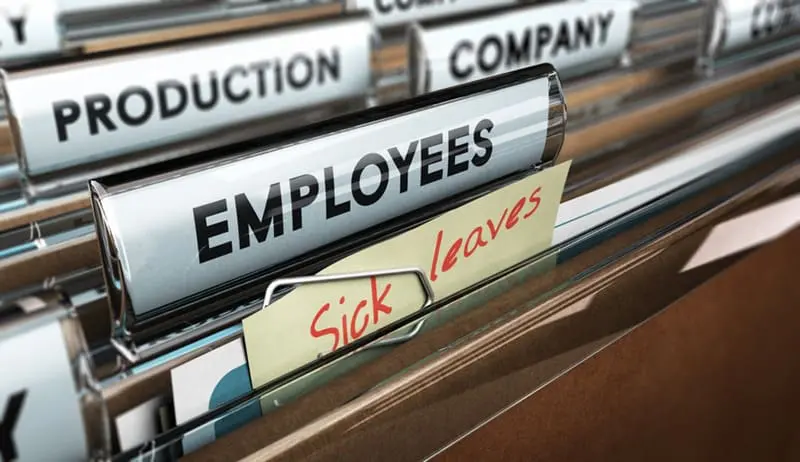Alex Cheong Pui Yin
8th October 2021 - 7 min read

These days, it is commonplace for companies and organisations to offer medical coverage as part of their employment benefits, providing you with access to medical protection as long as you are working for them. This, in turn, has prompted many individuals to question the necessity of purchasing a personal medical insurance – why fork out money to get my own when my company is already providing one? After all, that’s extra cash in hand for investment purposes, emergency savings, or other necessities, right?
However, there are several crucial factors to get your own medical insurance. In this article, we’ll share three reasons as to why you should not rely only on your company-provided medical insurance, and change the mentality of “one or the other” to “one complementing the other”.
Before we do that, let’s take a look at how company medical insurance works.
Company-Provided Medical Insurance: At A Glance

A company or organisation that offers medical coverage to its employees will usually buy group medical insurance plans in order to do so. These plans – as its name suggests – provide health coverage to a group of people, with the most common perks being medical cards for outpatient treatment or hospitalisation cover.
Typically, the benefits provided by these plans are standardised for employees based on their salary packages; employees in the same salary brackets receive the same amount of coverage regardless of their medical background. Some plans (usually the higher-tiered ones) will also allow you to extend the medical insurance coverage to your immediate family members or other dependents (usually at an extra cost). Depending on your health, this standardised coverage can be good or bad.
Meanwhile, individual or personal medical insurance works quite differently to group medical insurance policies. Here’s a table to show the key differences between group medical insurance and individual medical insurance plans:
| Individual/Personal medical insurance | Group medical insurance |
| Not affected by employment tenure | Only provided if an individual is part of the organisation |
| The policyholder (you) owns the contract of the insurance | The employer owns the contract of the insurance, and you (as the employee) receives the certificates |
| The insured (you) has the right to make decisions regarding the policy (e.g. changing plans, increase/decrease limits, cancellations, etc.) | The company has the right to make decisions regarding the policy (e.g. changing plans, increase/decrease limits, cancellations, etc.) |
| Policy is personalised to the policyholder, based on risk factors such as age and medical history | Policy is standard across all employees in the same salary bracket |
| Entry cost increases with age | Entry cost remains the same regardless of employees’ age |
Why You Should Still Have Your Own Medical Insurance

Now that you have an idea of how company (or group) medical insurance works, we’ll delve into a few reasons why you should not rely solely on them. Without doubt, your company’s medical insurance benefits are a useful perk, but there are situations where they are insufficient.
1) Standardised coverage may not be sufficient
Group medical insurance plans usually allocate a fixed amount of coverage for all members – usually without requiring pre-medical screening. Just like individual medical insurance, there is a limit to the coverage provided, and once it is exhausted, it will only be refreshed in the next calendar year. As such, your company’s medical insurance benefits are a useful first layer that can cover minor outpatient or hospitalisation costs.
Similarly, this one-size-fits-all approach for company medical insurance means it shouldn’t be relied upon as your sole medical policy. Sure, most of the time, employees won’t reach this annual limit, but if something unfortunate happens and you are hospitalised for a lengthy period of time, that’s when things can get very messy – you’ll now need to pay for the medical costs beyond your company’s medical benefits coverage.
2) Changes in employment situation

Depending on company medical insurance means that you are only insured when you are employed. A change in your employment status – such as being laid off, switching to a freelance position, or going on a sabbatical – will result in you losing your medical insurance and thus being in a protection gap (a period where you are not covered by insurance).
If you’re extremely unlucky, a protection gap can be catastrophic. Any medical emergencies that take place during this period when you are unprotected will force you to dip into your savings, which may sometimes be insufficient depending on the severity of the emergency.
A good instance of this scenario can be seen from our country’s ongoing fight against the Covid-19 pandemic, where numerous Malaysians abruptly found themselves unemployed as employers struggled to keep their businesses afloat. Without a job (and consequently, the company medical insurance provided), these individuals would be left uninsured if they do not have their own personal medical insurance, and any major health emergencies could leave them potentially crippled financially.
3) No post-retirement coverage

Given that the minimum retirement age in Malaysia is currently set at 60 years old, and with statistics showing that Malaysians are now enjoying a longer life expectancy of up to 75 years old, this would mean that you could be unprotected at a time when you are statistically most likely to require medical treatment!
In addition to that, waiting until your golden years to get a medical plan is a financially unwise move, solely because age plays a big role in determining the premium. Younger people typically have more affordable premiums as they are perceived to be less risky or likely to require medical care.
By the same token, older people are assigned significantly higher premiums due to their health risks; there is a higher chance that you may make medical claims when you’re older, and the insurance company takes this into consideration when deciding on your premium. To illustrate, an earlier study done in the US showed that medical insurance premiums for adults aged between 50 to 59 will increase by 13%, whereas those aged 60 and above will face a 22% hike. While these numbers do not translate directly to our local insurance industry, it gives you an idea of the impact that age has on medical insurance premiums.
Given these arguments, it clearly makes better sense to purchase your medical plan at a younger age, when you’re still at the peak of your health.
***
Of course, cost naturally comes into play when purchasing any form of insurance protection. As such, AXA AFFIN Life Insurance offers a wide range of competitively priced medical insurance plans. For example, AXA eMedic is a basic policy that provides medical coverage with an annual limit of up to RM100,000. The premium starts at a low RM37* per month (that’s about RM1.20 per day), and includes benefits such as unlimited days for room & board, as well as cashless admission at panel hospitals. Open to those aged between 15 days to 49 years old, the plan is renewable up to the age of 80, and can be purchased via online application with no medical check-ups required.
Better yet, you can enjoy a 5% discount on the premium if you tap into the Family Plan offer by purchasing AXA eMedic with your family members! This package is applicable to a minimum of one adult and one child, and a maximum of two adults and five children.
If you need something more, though, the AXA iMed plan may suit you better. AXA iMed comes with an increased annual limit of up to RM180,000, along with daily hospital allowance (RM100 for ICU, RM50 for normal wards) and compassionate allowance of up to RM3,800. It also has the rare advantage of offering additional coverage for chiropractic and acupuncture treatment, which is usually excluded by most insurers.

Like eMedic, AXA iMed is also available only to those between the age of 15 days to 49 years old, and does not require medical check-up to purchase. It can be purchased online and is renewable until the age of 80 as well.
Medical benefits are one of the ways companies attract talent, but it should not mean that it is sufficient for everyone. This benefit should serve as a complement to your existing medical insurance policy, and not a replacement.
*based on age & plan chosen





Comments (0)